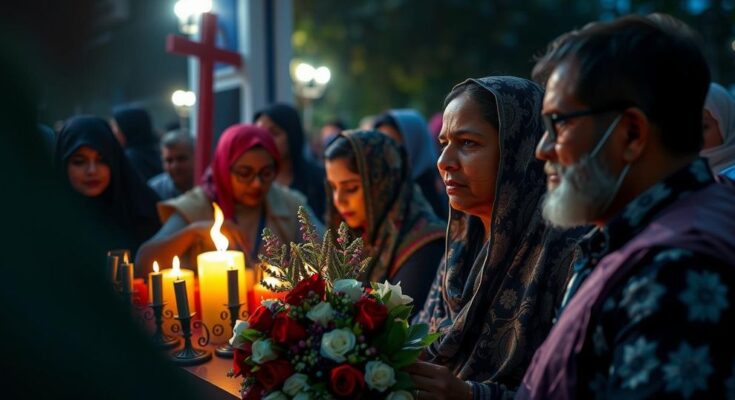The family of Bangladeshi worker Mohammad Nizam, who was killed in an Israeli airstrike in Lebanon, holds Israel accountable for his death and calls for an end to the ongoing conflict. Nizam’s tragic demise has highlighted the dangers faced by expatriate workers, with many others in Lebanon seeking evacuation amidst the violence.
DHAKA: The family of a Bangladeshi national, who tragically lost his life due to an Israeli airstrike in Lebanon, has expressed profound sorrow and condemned the Israeli government, asserting it bears sole responsibility for his death. They emphasized the urgent need to end the ongoing conflict in the Middle East. Reports indicate that there are between 70,000 and 100,000 Bangladeshi expatriates in Lebanon, primarily engaged in labor and domestic work, according to estimates by the Bangladeshi Foreign Ministry. Mohammad Nizam, aged 31, met his untimely demise on Saturday afternoon while he was at a coffee shop en route to his workplace in Beirut, as confirmed by Bangladesh’s Ambassador to Lebanon, Javed Tanveer Khan. Nizam’s elder brother, Mohammad Jalal, conveyed to Arab News, “Israel is solely responsible for the death of my brother. This war should be stopped without any delay.” He further lamented, “Since the beginning of recent Israeli attacks in Lebanon, I have been worried about Nizam’s safety. But I couldn’t imagine this tragic end to my brother’s life. If I could have sensed this outcome even a little bit, I would have brought him back at any cost.” As of late September, the casualties from Israeli offensives in Lebanon have reached nearly 3,000, with the Lebanese Health Ministry reporting over 13,300 injured, primarily among civilians and medical facilities. Jalal raised a poignant question, stating, “I don’t understand how many innocent lives need to be sacrificed to satisfy the whims of the Israeli leadership. It’s simply inhuman, insane and cynical.” In response to the rising violence, approximately 1,800 Bangladeshi nationals have sought to return home through organized evacuation flights facilitated by the government of Dhaka, in partnership with the UN’s International Organization for Migration. While some have already been evacuated, Nizam did not register since he had not visited his homeland in the 12 years of his residence in Lebanon. Jalal shared his brother’s aspirations, saying, “The last time we talked… he was talking about building a house here in his birthplace. He was planning to return home soon by the end of this year. But now all of our dreams for a happy reunion have faded away with this sudden blow.” Currently, the family has requested the repatriation of Nizam’s body but has been informed that circumstances due to the ongoing conflict impede this process. Despite this, they remain hopeful for assistance from authorities. Jalal expressed his despair, stating, “Now, I am waiting to see my brother’s face for one last time and bury him in our village. But I have no idea whether it would be possible or not amid this war situation. I don’t know when I will be able to see his face.”
The ongoing conflict in the Middle East has resulted in significant loss of life and displacement, particularly affecting foreign nationals living in Lebanon. The Bangladeshi community is one of the largest groups of foreign workers in the country, often employed in low-wage jobs. Recent escalations in violence have raised serious concerns for their safety. The tragic death of Mohammad Nizam epitomizes the hazards faced by these expatriates during times of conflict, prompting calls for international attention and humanitarian response. The situation remains critical, with many families anxiously awaiting news of loved ones amid the turmoil.
The heartbreaking incident involving Mohammad Nizam serves as a stark reminder of the human cost of conflict, particularly affecting vulnerable groups such as migrant workers. His family’s grief is compounded by the uncertainty of repatriating his body due to ongoing violence. The calls for an immediate ceasefire echo the sentiments of many who yearn for peace in the region. As the conflict continues, the plight of Bangladeshi nationals in Lebanon remains a pressing issue that demands urgent attention.
Original Source: www.arabnews.com




